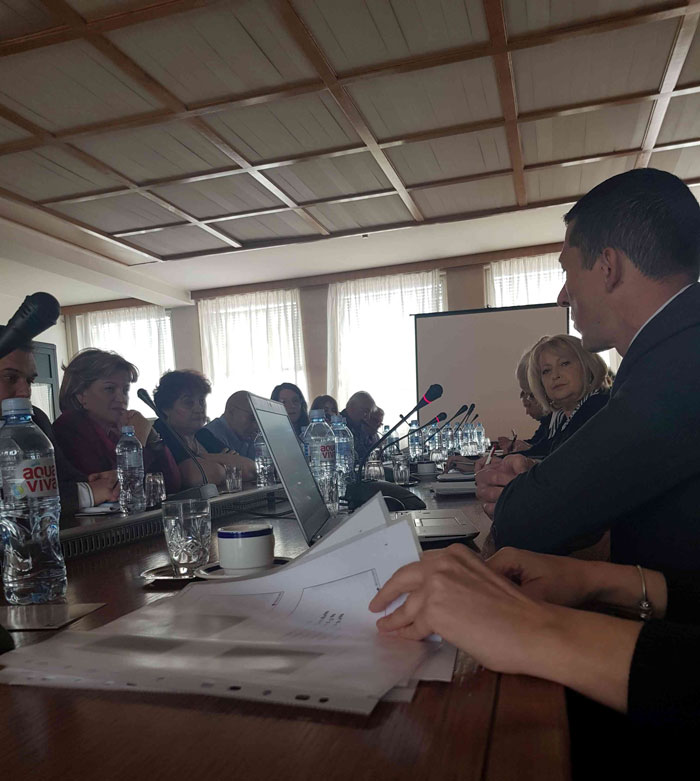Joint session of two Government’s Councils of the Republic of Serbia

In Palace of Serbia, on Thursday 6 June 2019 a joint session of two Government’s Councils of the Republic of Serbia was organised: Council for Ageing and Council for Intergenerational Solidarity. Prof Dr Slavica Djukic Dejanovic, Minister without portfolio responsible for demographics and population policy chaired the session.
The main topic of the session was prevention of elder abuse and the upcoming World Elder Abuse Awareness Day, 15 June. Natasa Todorovic, psychologist working in the Red Cross of Serbia spoke as an expert about elder abuse as a public health and social problem. She emphasised that 15 June was first marked on 2006 and that in Serbia, following the initiative and organisational efforts of the Red Cross of Serbia, its marking started in 2007 and has been observed every year since. The Red Cross of Serbia presents a good practice example as this organisation was first to recognise the issue of elder abuse in Serbia and then put the marking of this date on its agenda but also advocated for including this date in the official UN calendar. For many years already the Red Cross of Serbia was also advocating for the new UN Convention on Human Rights of Older People and this makes the organisation recognised and respected across the world.
In Serbia this date is marked through partnership between civil and public sectors. An important contribution of the Red Cross of Serbia in this area are research studies done in Serbia as well as the education of older people focusing on elder abuse, especially implemented with participation of the red Cross of Serbia local branches, which helps reaching some of the most vulnerable groups among older people (older women living n rural areas, older Roma women, older persons living with disabilities). Research studies so far showed that elder abuse tends to be underreported so the amount of known cases is but the tip of an iceberg, as well as that the most frequent form of abuse is financial elder abuse, with 11% of older people having experienced it in their older age.
It is necessary for the whole society to work on prevention of elder abuse because older people’s human rights today are our human rights tomorrow.
Natasa Todorovic also presented a tool for data collection on programmes of intergenerational solidarity that will be sent to local administrations and Red Cross of Serbia branches in order to collect information on good practices.
